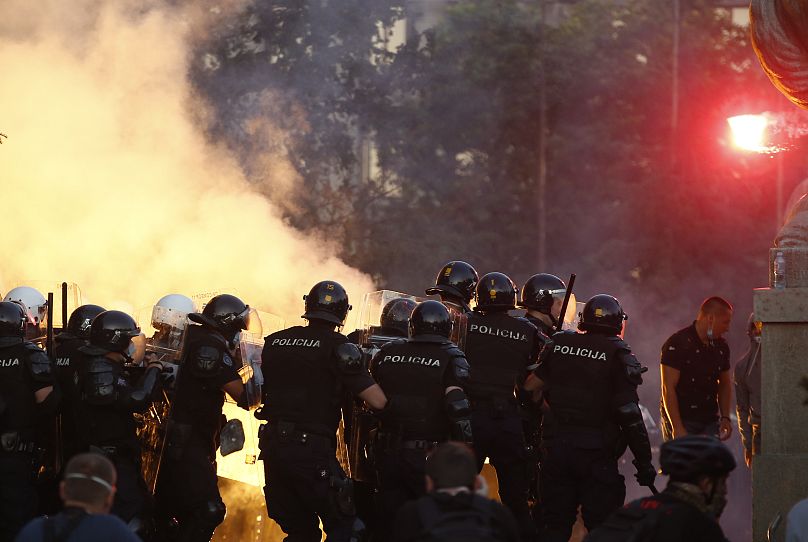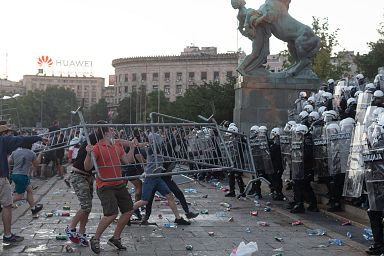Serbian president backtracks on COVID-19 curfew as protests enter second day
Thousands took to the streets of Belgrade again on Wednesday to protest the Serbian president's handling of the coronavirus outbreak in the country
Serbian President Aleksandar Vučić on Wednesday backtracked on plans to enforce a second coronavirus lockdown amid violent protesters in Belgrade.
 ADVERTISEMENT
ADVERTISEMENT
 ADVERTISEMENT
ADVERTISEMENT
Vučić had announced on Tuesday that new lockdown measures would be reintroduced later in the week amid increasing coronavirus cases, prompting demonstrators to gather in front of the parliament with some chanting "Resignation! Resignation!"
Protests continued on Wednesday, starting out peacefully, but then turning violent with several injured as clashes erupted between groups of protesters and police.
Police in armoured vehicles and on horseback pushed demonstrators back and preventing crowds from returning to the square outside the parliament building.
There were also reports of clashes in Novi Sad, a town in northern Serbia.
Climbing down from his original announcement of measures that were set to take effect from Friday to Monday, Vučić said that he could not enact them without a state of emergency in Serbia.
He added that he still supports the lockdown but “most probably, there will be no curfew."
The government, Vučić said, will decide on a set of new measures that could include penalties for people not wearing masks and shortened hours for night clubs.
The country's chief epidemiologist, Predrag Kon, told Serbia's cable news channel N1 earlier in the day that the protests showed how people felt about the lockdown.
Several people had attempted to storm the parliament building on Tuesday, briefly managing to enter, but were pushed back by riot police.
Protesters reacted by throwing projectiles including flares, stones, bottles and eggs at authorities.
Vučić's critics have said that he lifted the state of emergency in order to hold an election, which he has denied.
He described the protests in Belgrade as “political” and said they had “nothing to do with the coronavirus.″
The president claimed they were connected to EU-sponsored talks aimed at normalizing relations between Serbia and Kosovo that are set to restart on Sunday, which nationalists in the country oppose.
Vučić on Tuesday called the situation relating to coronavirus in the Serbian capital "alarming" and "critical" as the city's hospitals neared their capacity limits.
At least 357 new COVID-19 cases were confirmed in 24 hours and 11 people had died, according to the country’s Health Ministry.
Serbia went from having one of the strictest lockdowns in Europe to near-complete reopening at the beginning of May.
The country's total confirmed cases on Tuesday stood at 17,076 with 341 virus-related deaths.












